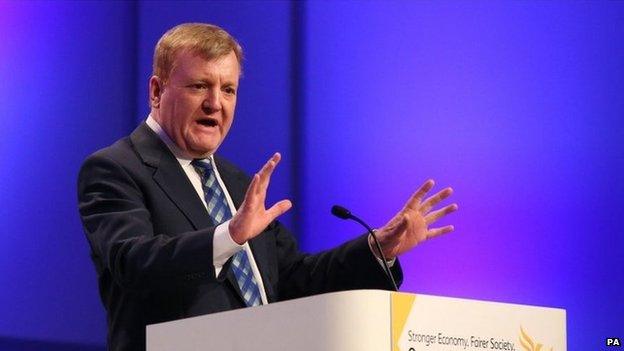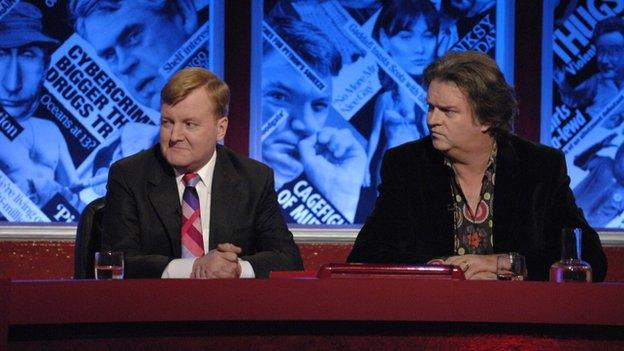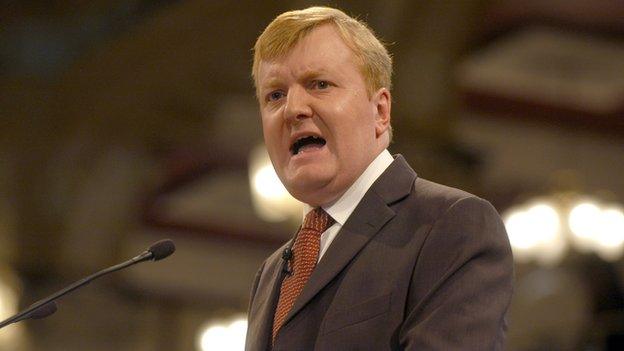Charles Kennedy - He left a mark on politics. It left a mark on him
- Published

The only UK party leader to warn the country of the perils of invading Iraq when Labour and the Conservatives were uniting to support it.
The only Liberal Democrat MP who could not bring himself to vote to form a coalition with the Conservatives (Source - Alex Carlile).
The man who took his party to its electoral peak.
Charles Kennedy left a mark on British politics but it also left its mark on him.
Elected at the age of just 23, politics and the House of Commons became his life whilst alcohol was his friend, his prop and his curse.
Private shyness
The boy from the Highlands needed no spin doctors or hired political strategists to connect with the public. He was a natural.

The former Lib Dem leader appeared as a regular guest on satirical news programme Have I Got News for You
The wit which made him a national student debating champion was deployed on the TV talk shows and panel games by the man who became known as Chatshow Charlie. Yet this public self-confidence masked a private shyness and vulnerability.
All of us in Westminster knew that Charles "liked his drink". Most of us thought "so what?" since it rarely seemed to get in the way of his public duties. A few knew differently. They cared for him. They covered for him. They lied for him. They denied what we all now know. Charles Kennedy was an alcoholic.
In the 2005 general election the Lib Dem leader's colleagues despaired as he stumbled through the details of a crucial policy. I was one of those asked to wait and wait and wait as Charles was "got ready" to do interviews to clear up the mess he had created.
That was the reason his triumph as party leader - securing almost six million votes and 62 MPs in the 2005 general election compared with fewer than 2.5 million and eight seats in the election this May - was followed by the tragedy less than a year later of being forced to resign.
Ever since that day his was a muted political voice though still a powerful one.
'Shrewd political judgements'
A politician of the left - attracted first to Labour and then to the breakaway SDP - he continued to resist the coalition even after others who shared his fears acquiesced to what they saw as inevitable.
He warned that David Cameron would use it to re-brand his party as Liberal Conservatives destroying the real Liberal Party in the process and complained that it drove "a strategic coach and horses through the long-nurtured 'realignment of the centre-left' to which leaders in the Liberal tradition - this one included - have all subscribed".
He voted against the rise in tuition fees.
But he was someone who resisted rather than fought his party's alliance with the Conservatives.
He would have been a powerful voice arguing for Britain to stay in the EU.
These past few weeks have, his friends say, been very difficult for him. First the loss of his father then the loss not just of his seat in Parliament but of his raison d'etre for the past three decades.
Despite being a professional politician for his entire adult life Charles Kennedy will be mourned today by many who despise politics.
In an era when people crave leaders who are not crafted and schooled by their advisers most will remember him for his authenticity and warmth.
Never forget, though, that this was a man who instinctively, if sometimes chaotically, made some exceptionally shrewd political judgements and died far, far too young.
- Published2 June 2015
